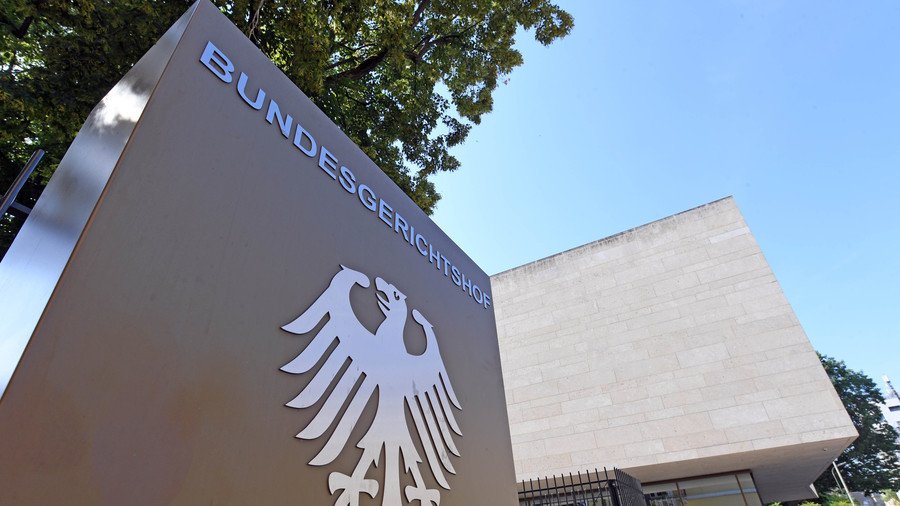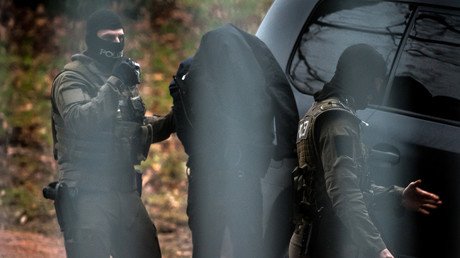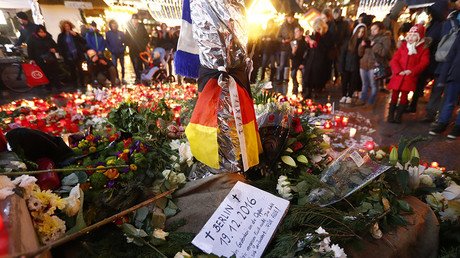Germany needs 2,000 more judges to deal with ‘enormous’ 5-fold spike in terrorist-related cases

New terrorist-linked cases have skyrocketed this year, increasing almost fivefold compared to 2016, Germany's Federal Prosecutors Office has said. The revelation comes as judges lament that human resources are overstretched.
As many as 1,200 investigations have been launched by federal prosecutors over various terrorist-related activities this year, the Federal Prosecutor’s Office told the dpa news agency. It added that 1,000 cases involved radical Islamists.
The figures were described as an “enormous increase” from the previous year, when only around 250 similar cases were recorded, with 200 being linked to radical Islam. The Federal Prosecutor’s Office did not elaborate on the reasons for the significant rise, and provided no details about the nature of the activities that led to the initiation of the criminal investigations.
The Federal Prosecutor’s Office, Germany’s highest prosecution body, is, however, usually tasked with investigating offenses that pose a grave danger to the internal or external security of the state, Der Spiegel reports. “Less significant” cases are investigated by local and regional authorities, the publication added. This means the number of major terrorism-related cases alone has reached 1,200, while the total number of possible terrorism-linked cases might be even higher.
The proliferation of such cases has already led to a situation where federal prosecutors are overstretched, and forced to pass a over a third of these cases to regional state attorneys. This year, according to the dpa, the Federal Prosecutors Office in Karlsruhe had to hand as many as 450 such files over to regional authorities.
As things stand, the situation threatens to overwhelm local judges and law enforcement authorities as well, warns the German Judges Association. In addition, regional authorities are dealing with a growing number of terrorism-related cases that particularly involve jihadists leaving the country to fight in Iraq and Syria, as well as some terrorist sympathizers who are financing extremist groups.
“The cases handed over by the federal prosecutors come on top of it,” Sven Rebehn, the head of the judges association told Der Spiegel, adding, “the situation is tense everywhere.” He said Germany needs some 2,000 additional judges and prosecutors to deal with the case backlog.
And against the backdrop of an already under pressure legal framework, the number of terrorism-related cases continues to grow. Just on December 21, German police detained a man who was allegedly plotting a car-ramming attack in the southwestern city of Karlsruhe, where the Federal Prosecutor’s Office as well as the German Constitutional Court are situated.
Notably, even the assessments of the situation provided by the prosecutors themselves are rapidly changing, and alarmingly so. Just in October, the Federal Prosecutor’s Office put the total number of major terrorism-related cases at about 900. This number appeared to grow by 300 additional cases just over the course of two months.
In early December, Hans-Georg Maassen, the head of the Federal Office for the Protection of the Constitution (BfV) – the German domestic security service – warned that the number of Islamist sympathizers is at an “an all-time high.” He also expressed concerns over the rapid increase of this number, which went up from 9,700 to 10,800 over the past year.
Maassen said Islamic fundamentalists had moved from radicalizing people in mosques to acting in “small conspiratorial circles, primarily on the internet,” adding, that such a tactical change poses a “particular challenge” for Germany's security services.
















